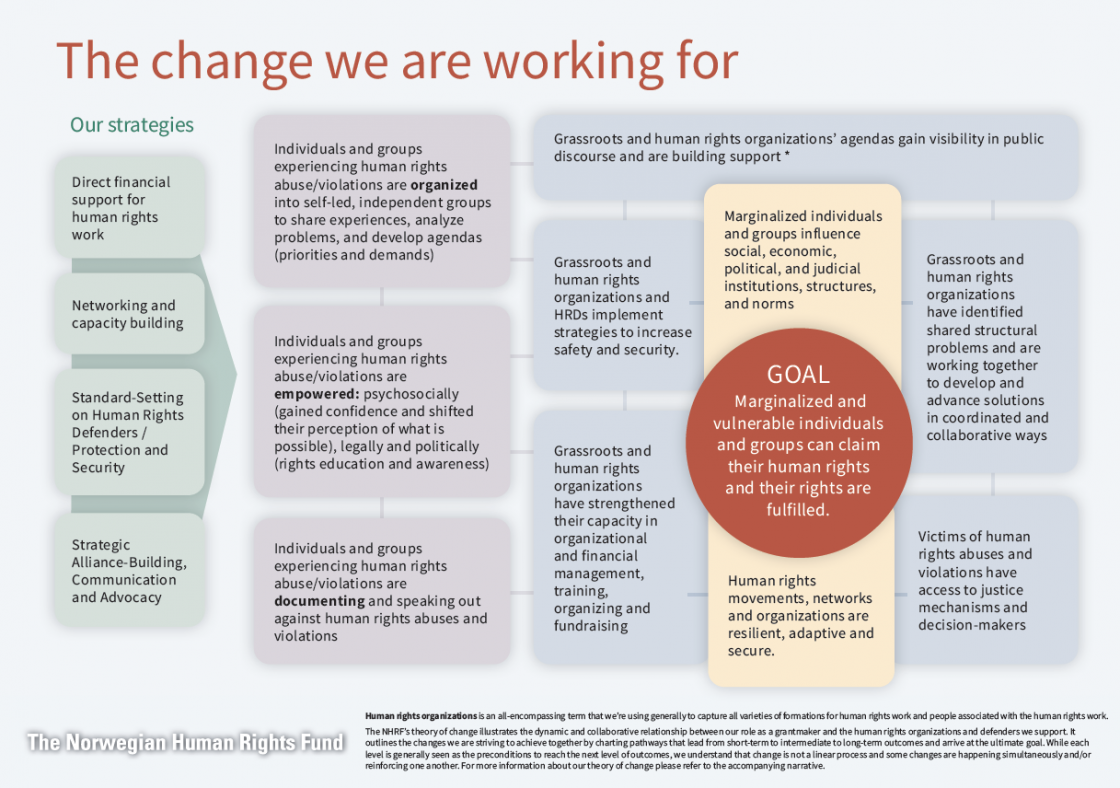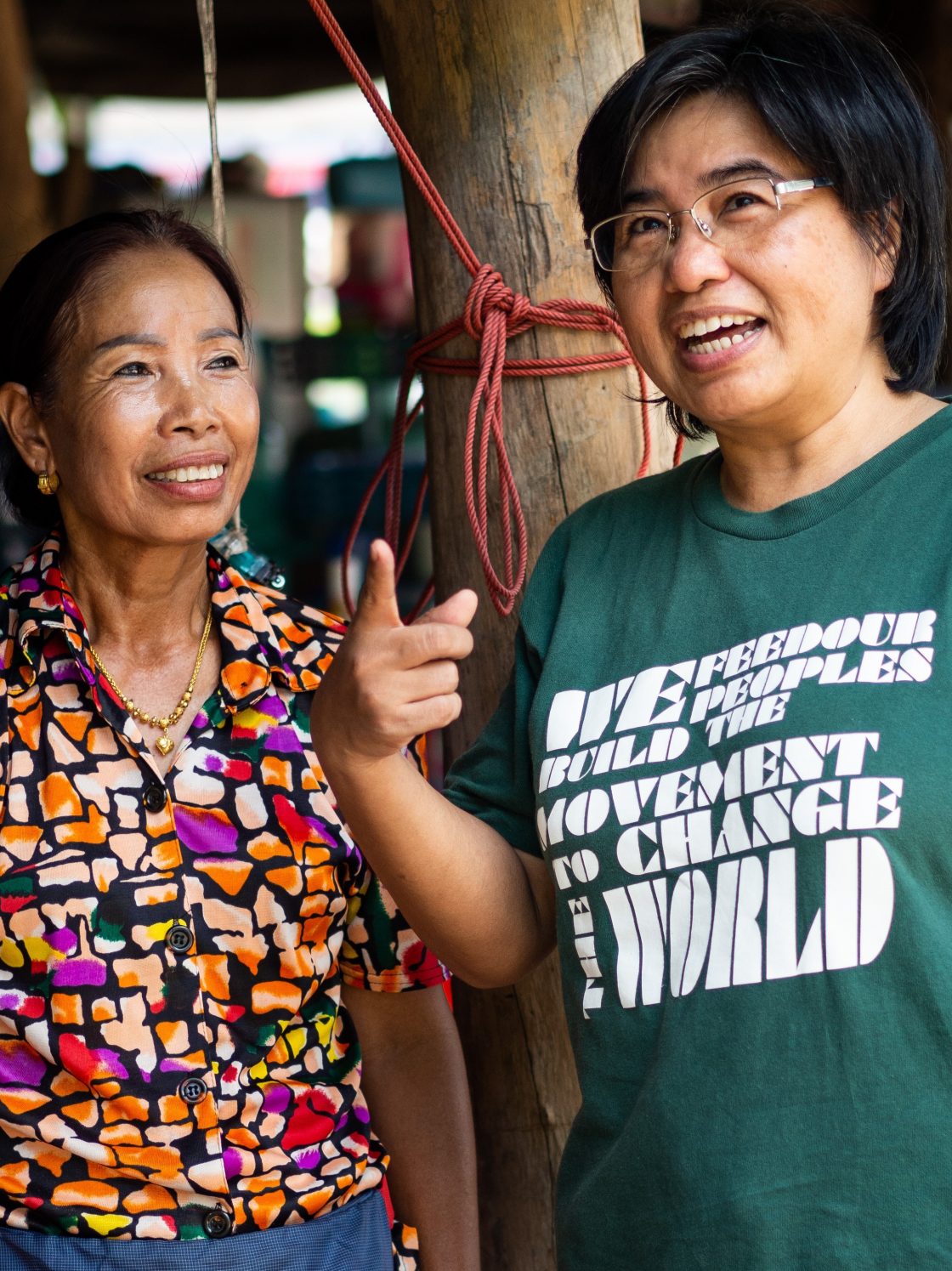Theory of Change
Introduction

The development of the theory of change was a participatory process involving the NHRF Secretariat, its Board, NHRF local consultants, and a selection of grantee partners. It is a living document that represents our theory of how change is created and driven forward. It articulates expected outcomes and their preconditions that, together, form pathways of change that lead to the overall goal. We understand these processes to be non-linear, interconnected, interdependent, mutually reinforcing, and occurring simultaneously or separately. The theory of change will guide our work as a partner and grantmaker by informing the support we provide to human rights work to achieve the defined outcomes and overall goal. It is one of the key elements used in our monitoring, evaluation, and learning processes. We will regularly review and refine the theory of change as we assess if our interventions are bringing about change and if the pathways of change are accurate and realistic.
Resource the source of change: Leadership at the grassroots level

The NHRF primarily supports small- to medium-sized organizations and movements that represent and work with marginalized and vulnerable individuals and groups experiencing human rights injustices. Some initiatives are nascent, and others are more experienced and professional. Our goal is to directly reach communities and people experiencing injustice, so we prioritize support for initiatives that are led by the communities or people themselves or to those who are working in direct connection with and for them. The NHRF operates from the belief expressed by the UN Special Rapporteur on the situation of human rights defenders, “There is no strict definition of human rights defenders because they can be anyone who acts at any moment for any human rights. … A human rights defender can be a man, woman, lawyer, student, an NGO’s employee, a doctor or any person from any profession, of all ages, nationalities, religions, etc.” Therefore, the NHRF often refers to supporting human rights defenders (HRDs) in our work as we view all grantee partners working in the front lines for human rights as HRDs.
The NHRF has always instilled the essentiality of human rights initiatives and efforts being led by those experiencing human rights injustices, who are empowered with the expertise, agency, and knowledge of the most effective methods for not only defending rights but also uprooting systemic oppression. Human rights work transforms power relationships and dynamics and it is inherently political. Its focus on systemic change requires a long-term commitment and an understanding that holding one’s ground and preventing changes that erode human rights will be necessary in some contexts.
